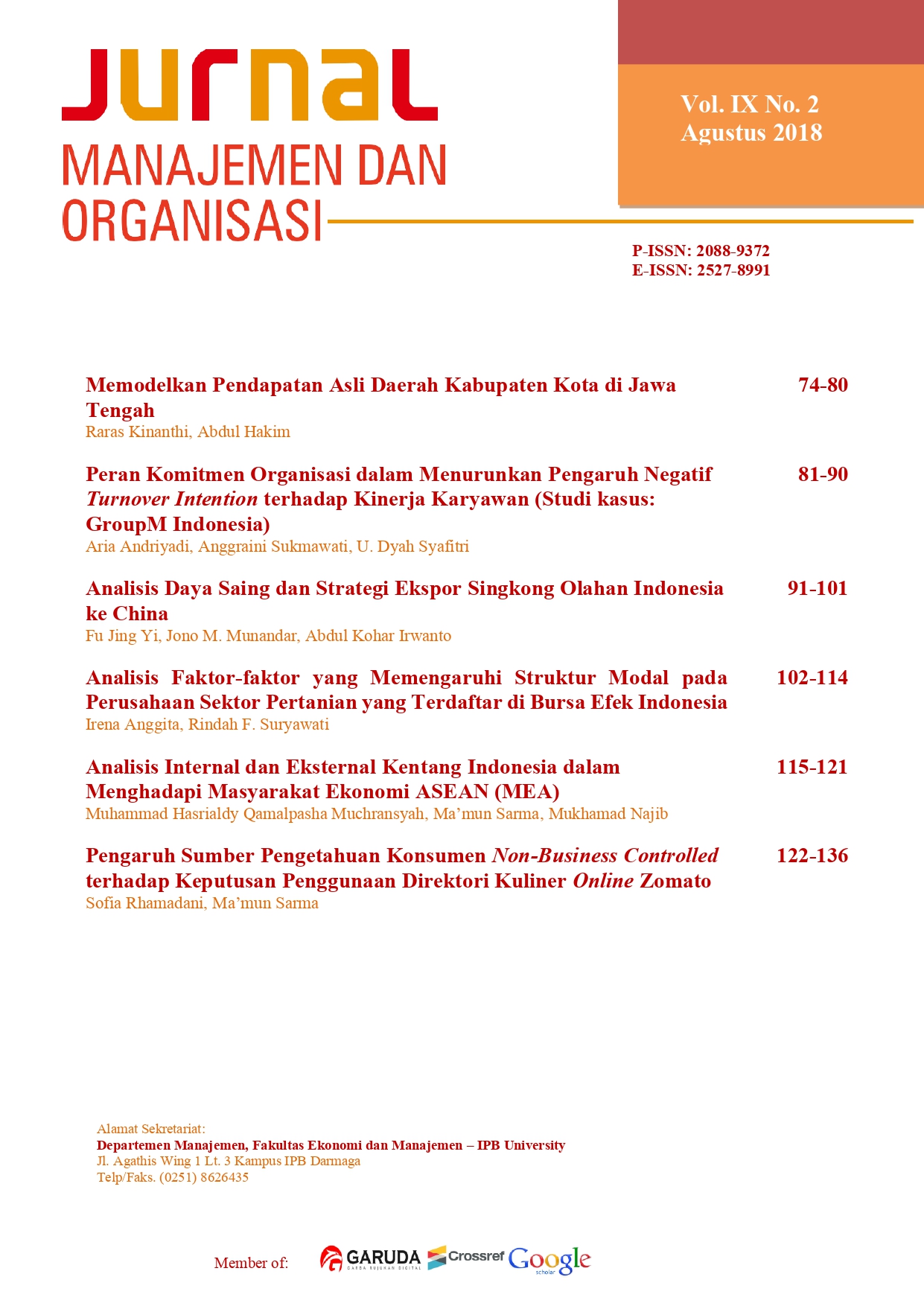Peran Komitmen Organisasi dalam Menurunkan Pengaruh Negatif Turnover Intention terhadap Kinerja Karyawan (Studi kasus: GroupM Indonesia)
Abstract
Information about the factors that influence turnover intention is needed by managerial in providing strategic steps to overcome the negative effects of high turnover intention. This study aims to analyze the effect of turnover intention on employee performance with organizational commitment as a moderator variable. The sampling method used was the proportionate stratified random sampling technique. The research data used respondents' perceptions of the variables, then analyzed using Structural Equation Modeling-Partial Least Square (SEM-PLS) method. The results of this study indicate that turnover intention has a negative relation toward employee performance and commitment, although not significant. This condition can occur because of tugging to get high-performing talents in the service industry. This condition is triggered by the increasingly open competition in the world of work so that employees are aware of having to create a positive impression for the company to be left, which will usually be a recommendation to the next destination company. High organizational commitment is an important factor in improving employee performance. High organizational commitment will reduce the desire of employees to leave a company (turnover intention) and reduce the negative influence on employee performance, so that despite high turnover intention, employee performance is remaining high. This happens especially in service companies whose main capital is human resources.


.jpg)




